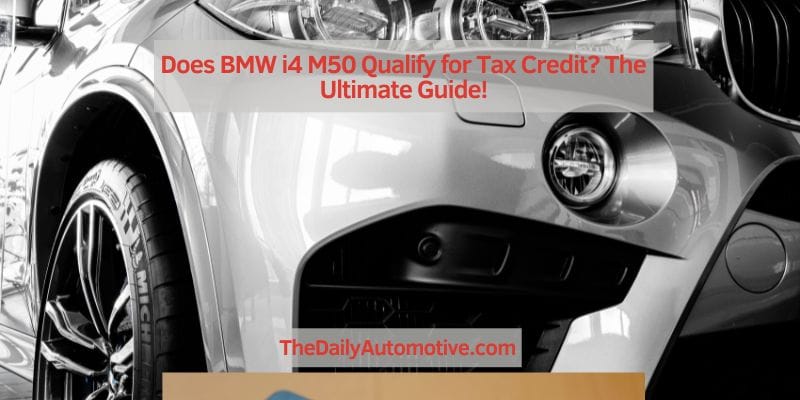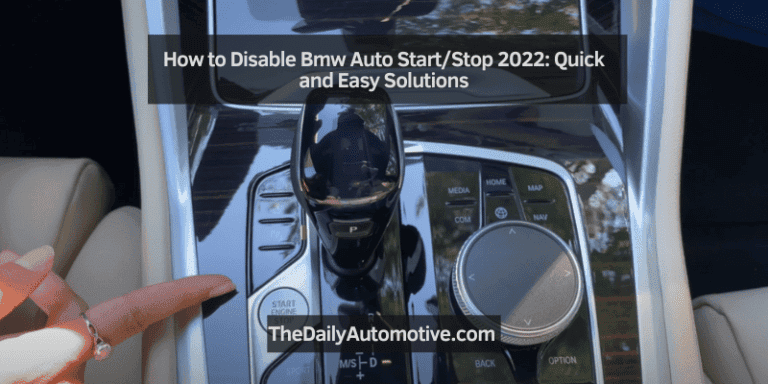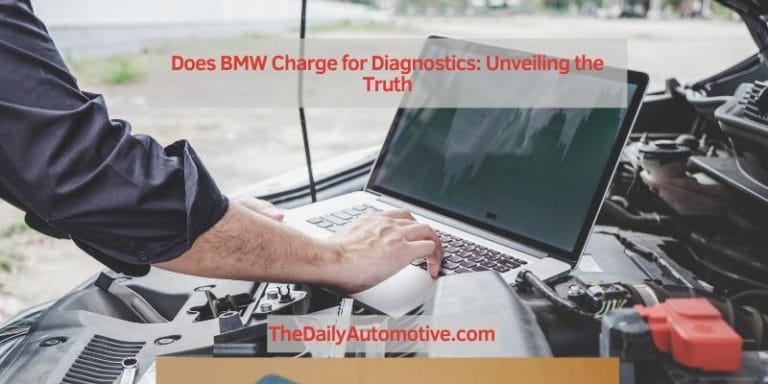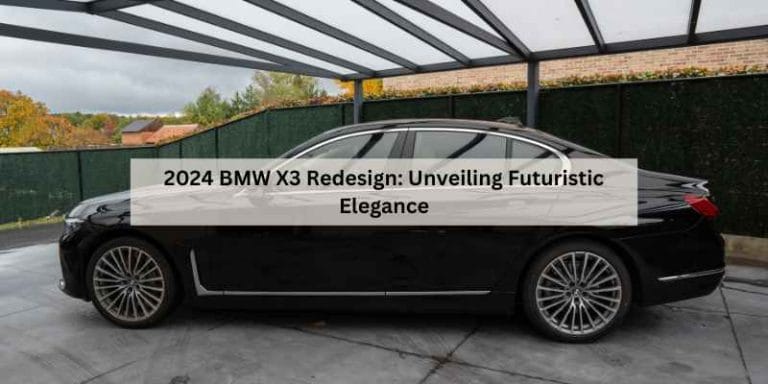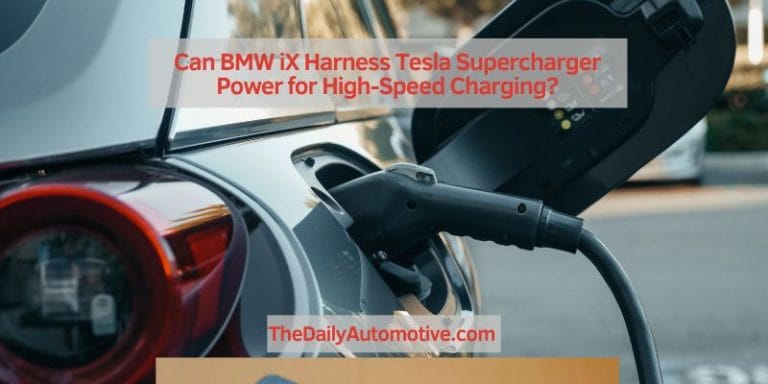Does BMW i4 M50 Qualify for Tax Credit? The Ultimate Guide!
The BMW i4 M50 does qualify for a tax credit, making it eligible for potential tax savings. Now, let’s dive into the details.
The BMW i4 M50 is an all-electric vehicle that combines luxury and performance with zero tailpipe emissions. As governments and individuals alike seek to reduce their carbon footprint, electric vehicles have gained popularity. In support of this transition, many countries offer incentives, such as tax credits, to encourage the adoption of electric vehicles.
The BMW i4 M50 meets the requirements for such tax credits, helping buyers save on their taxes while contributing to a cleaner environment. By taking advantage of these incentives, purchasers can enjoy the benefits of owning a stylish and sustainable vehicle like the BMW i4 M50 while making a positive impact on both their finances and the planet.
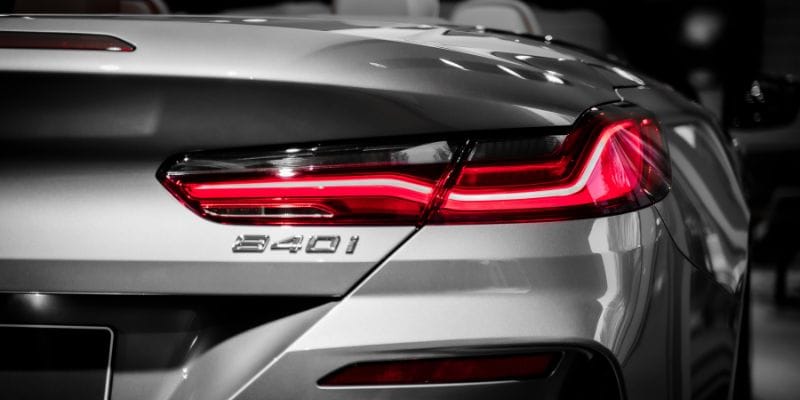
Understanding Electric Vehicle Tax Credits
The BMW i4 M50 may qualify for electric vehicle tax credits, providing potential savings for eligible buyers. Understanding these tax credits can help individuals make informed decisions when purchasing an electric vehicle.
Explanation of Federal Tax Credit
The federal government provides a lucrative tax credit incentive to encourage more individuals to switch to electric vehicles (EVs). This tax credit can significantly offset the cost of purchasing an electric vehicle, including the BMW i4 M50. To claim this tax credit, it is essential to understand how it works and what eligibility criteria must be met.
The federal tax credit for electric vehicles is determined based on the capacity of the battery used in the vehicle. The BMW i4 M50 boasts an impressive battery capacity, making it eligible for a substantial tax credit. The federal tax credit for electric vehicles ranges from $2,500 to $7,500, depending on the battery capacity. It is important to note that the tax credit is not a direct deduction from your taxes but rather a credit that reduces the amount of tax you owe.
State-Level EV Incentives
In addition to the federal tax credit, many states offer their own incentives to promote the adoption of electric vehicles. These incentives vary from state to state and can include additional tax credits, rebates, grants, and exemption from certain fees. As a prospective BMW i4 M50 owner, it is crucial to research what incentives your specific state offers.
While some states offer generous incentives, others may have limited or no incentives in place. It is crucial to take these state-level incentives into account when considering the overall cost of purchasing an electric vehicle. By leveraging both the federal tax credit and state incentives, you can significantly reduce the cost of owning a BMW i4 M50.
Claiming the Federal Tax Credit
To claim the federal tax credit for your BMW i4 M50, you must meet certain criteria. Firstly, the vehicle must be purchased new and not used. Additionally, the vehicle must be used primarily for personal use and not for business purposes. It is also important to note that the tax credit is non-refundable, meaning it cannot exceed the amount of tax you owe.
It is vital to consult with a tax professional or review the IRS guidelines to ensure that you meet all the necessary requirements and can maximize the tax credit for your BMW i4 M50. By understanding the federal tax credit and any state-level incentives available to you, you can make an informed decision about purchasing an electric vehicle and potentially enjoy substantial cost savings.
In conclusion, the BMW i4 M50 qualifies for a federal tax credit that can significantly offset the cost of purchasing this electric vehicle. Additionally, researching state-level incentives can provide further cost savings. It is imperative to understand the requirements and limitations of the federal tax credit to ensure eligibility and optimize the available tax benefit. By taking advantage of these incentives, you can not only contribute to a greener future but also enjoy financial advantages. Remember to consult with a tax professional to navigate the complex tax credit process smoothly.
Qualifying For The Tax Credit With Bmw I4 M50
As electric vehicles become more popular, there are several incentives available for those who choose to make the switch to greener transportation. One such incentive is the federal tax credit, which can help offset the cost of purchasing an electric vehicle. In this article, we will explore whether the BMW i4 M50 qualifies for the tax credit, as well as other potential state-level incentives that owners may be eligible for.
Eligibility Criteria For Federal Tax Credit
Before determining whether the BMW i4 M50 qualifies for the federal tax credit, it’s important to understand the eligibility criteria. The tax credit is based on the electric vehicle’s battery size, with larger batteries receiving a higher credit. To qualify for the full tax credit, the battery size must be at least 16 kWh.
Additionally, the federal tax credit has a phase-out period once a manufacturer sells a certain number of qualified electric vehicles. Once a manufacturer reaches the production threshold, the tax credit is gradually reduced until it eventually phases out entirely.
Potential State-level Incentives For Bmw I4 M50 Owners
In addition to the federal tax credit, many states offer their own incentives to encourage the adoption of electric vehicles. These incentives can vary widely, so it’s important to check the specific regulations and requirements in your state.
Some potential state-level incentives for BMW i4 M50 owners include:
- State Tax Credits: Some states offer their own tax credits in addition to the federal tax credit. These credits can further reduce the cost of purchasing an electric vehicle.
- Rebates and Grants: Certain states provide rebates or grants to electric vehicle owners. These can help offset the cost of purchasing and owning an electric vehicle.
- HOV Lane Access: In some states, owning an electric vehicle grants you access to high-occupancy vehicle (HOV) lanes, even if you’re driving solo. This can be a significant time-saving benefit, particularly in areas with heavy traffic.
- Charging Infrastructure Incentives: States may offer incentives to support the development of electric vehicle charging infrastructure. These incentives can include grants, rebates, or discounts on charging equipment or installation.
These are just a few examples of the potential state-level incentives that BMW i4 M50 owners may be eligible for. It’s important to research and stay up-to-date on the incentives available in your state to fully understand the benefits you may be entitled to.
Calculating The Federal Tax Credit For Bmw I4 M50
Are you considering purchasing a BMW i4 M50 and wondering if it qualifies for a tax credit? The federal government offers tax incentives to promote the adoption of electric vehicles, which can help you save money on your purchase. In this article, we will explore how to calculate the federal tax credit for the BMW i4 M50 and the factors that can affect the final tax credit amount.
Determining The Maximum Tax Credit Amount
The first step in calculating the federal tax credit for the BMW i4 M50 is to determine the maximum tax credit amount. The federal government provides a tax credit of up to $7,500 for qualified electric vehicles. However, the actual tax credit amount for the BMW i4 M50 may vary depending on its battery capacity.
The BMW i4 M50 comes with a battery capacity of 83.9 kWh, which falls within the range of battery sizes eligible for the full $7,500 tax credit. This means that if you purchase a BMW i4 M50, you could potentially receive the maximum tax credit amount of $7,500.
Factors Affecting The Final Tax Credit
While the maximum tax credit amount is $7,500, there are factors that can affect the final tax credit for the BMW i4 M50. These factors include the following:
- Battery Size: As mentioned earlier, the battery capacity of the BMW i4 M50 is 83.9 kWh, making it eligible for the full tax credit of $7,500.
- Manufacturer’s Sales Limit: The federal tax credit is subject to a manufacturer’s sales limit. Once a manufacturer reaches 200,000 electric vehicles sold, the tax credit begins to phase out. As of [Insert current year], BMW has not reached this limit, so the full tax credit is still available for the BMW i4 M50.
- Individual Tax Liability: The federal tax credit is non-refundable, meaning it can only be used to offset your tax liability. If your tax liability is lower than the maximum tax credit amount, you may not be able to claim the full credit.
- Other State and Local Incentives: In addition to the federal tax credit, there may be other state and local incentives available for purchasing an electric vehicle, which can further reduce the overall cost of owning a BMW i4 M50.
It’s important to consult with a tax professional or use tax software to accurately calculate your individual tax credit for the BMW i4 M50 based on your specific circumstances.
Applying For And Claiming The Tax Credit
The eligibility of the BMW i4 M50 for tax credits can be determined by applying for and claiming the tax credit associated with electric vehicles. It is essential to follow the proper application process to ensure qualification and benefit from potential tax savings.
One of the attractive advantages of purchasing a BMW i4 M50 is the potential eligibility for tax credits. These credits can significantly reduce the overall cost of the car and make it even more appealing to eco-conscious buyers. However, it is essential to understand the process and requirements for applying and claiming these tax credits to fully benefit from them.
Application Process For Federal Tax Credit
Applying for the federal tax credit for your BMW i4 M50 is a relatively straightforward process. Here is a step-by-step guide to help you navigate through it:
- Firstly, make sure you’ve purchased or leased a brand new BMW i4 M50 that qualifies for the tax credit. The federal government has specific requirements regarding the battery capacity, electric range, and other factors to determine eligibility.
- Next, gather all the necessary documents and information to support your tax credit application. This includes proof of purchase or lease, vehicle identification number (VIN), and any additional documentation required by the Internal Revenue Service (IRS).
- Once you have all the required documents, complete IRS Form 8936 – “Qualified Plug-in Electric Drive Motor Vehicle Credit.” This form will collect the necessary information to calculate the amount of tax credit you are eligible to claim.
- Fill out the form accurately and double-check all the information to avoid any mistakes that could delay the processing of your application. Any errors or missing information could result in a rejection or delays in receiving your tax credit.
- After completing the form, attach it to your federal income tax return when filing for the corresponding tax year. It’s crucial to file your tax return correctly and on time to claim the tax credit successfully.
By following these steps, you can ensure a smooth application process for the federal tax credit, allowing you to reap the benefits of owning a BMW i4 M50.

Claiming State-level Incentives
In addition to the federal tax credit, many states offer their incentives and rebates for electric vehicle buyers. These state-level incentives can further sweeten the deal when purchasing a BMW i4 M50. Here’s how you can claim state-level incentives:
- Check with your state’s department of motor vehicles or energy office to determine what incentives are available for electric vehicle buyers. Each state has its unique programs, requirements, and application processes.
- Gather all the necessary documents and information required by your state’s incentives program. This may include your driver’s license, proof of residency, vehicle documents, and any other supporting documents specified by the program.
- Complete the application form accurately, providing all the requested details and information. Remember to pay close attention to the specific requirements, as any missing or incomplete information could delay or jeopardize your eligibility for the incentives.
- Submit your completed application and supporting documents according to the instructions provided by the program. Ensure you meet any deadlines specified to avoid missing out on the incentives.
- Upon approval, you will receive the state-level incentives, which can include tax credits, rebates, or other financial benefits. These incentives can significantly reduce the overall cost of your BMW i4 M50.
Remember to consult with your local authorities or professionals familiar with electric vehicle incentives in your specific state to ensure you understand and meet all the requirements. By taking advantage of these state-level incentives, you can maximize the benefits of owning a BMW i4 M50.
Frequently Asked Questions For Does Bmw I4 M50 Qualify For Tax Credit
Is The Bmw I4 M50 Eligible For Tax Credit?
Yes, the BMW i4 M50 is eligible for a federal tax credit of up to $7,500. This tax credit is available for electric vehicles purchased in the United States. However, it is important to note that the exact tax credit amount can vary depending on your individual tax situation.
How Do I Claim The Tax Credit For The Bmw I4 M50?
To claim the tax credit for the BMW i4 M50, you will need to file IRS Form 8936 along with your federal tax return. This form will require you to provide information about the vehicle, including the make, model, and vehicle identification number (VIN).
Be sure to consult with a tax professional for guidance on claiming the tax credit correctly.
Are State Tax Credits Available For The Bmw I4 M50?
While the federal tax credit is available for the BMW i4 M50, state tax credits or incentives may vary. Some states offer additional incentives for electric vehicles, such as rebates or tax credits. It is recommended to check with your state’s department of revenue or energy office to determine if any state-level incentives are available for the BMW i4 M50.
Conclusion
The BMW i4 M50 can indeed qualify for tax credits, making it a desirable option for eco-conscious car buyers. With its impressive electric range and luxurious features, the BMW i4 M50 offers a greener alternative without compromising on power and style.
By taking advantage of the available tax credits, customers can enjoy both financial savings and the satisfaction of driving a sustainable vehicle. Make the environmentally responsible choice and explore the BMW i4 M50 today.

